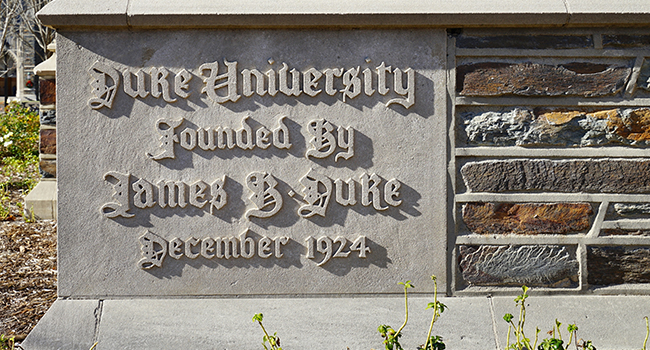
Duke Increasing Security After Sexual Assault Reported on Campus
Duke University is increasing security measures on its Central Campus after a student reported being raped in an on-campus housing common room in December, reports the Duke Chronicle.
- By Jessica Davis
- January 08, 2019
Duke University is increasing security measures on its Central Campus after a student reported being raped in an on-campus housing common room in December, reports the Duke Chronicle. Students were alerted to the upcoming changes in an email Thursday afternoon.
In the email, Vice President for Student Affairs Larry Moneta said that the university has installed automatic door closures and plans to install Duke Card readers outside of common room entries. Central Campus common room access was previously controlled by passcodes, which were reset the afternoon after the reported sexual assault.
According to Moneta, Duke also plans to install security cameras in “key areas” and increase security staff and vehicular patrols in the area.
"We’ve heard from many of you and your families with expressions of concern about safety on Central Campus and want to assure you that we hear you and care," Moneta wrote in a previous email to students in late December. "Nothing is more important [than] your safety."
The heightened concern about Central Campus security was spurred by a student reporting being raped in a Central Campus common room by a man holding a knife. A Duke Alert reported that the perpetrator entered the common room between 1 a.m. and 3 a.m. in December, and included a description of the suspect.
Kristen Brown, associate vice president of news, communications, and media, declined to comment to the Chronicle on whether the university had security footage of the assault suspect. John Dailey, Chief of Police for the Duke University Police Department, also did not respond to request for comment about security footage.
About the Author
Jessica Davis is the Associate Content Editor for 1105 Media.